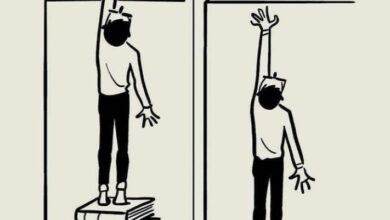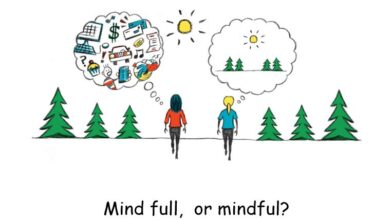What Is Minimalism? Simplicity and Intentional Living

Less Is More Right?
“Minimalism seeks to challenge consumer habits, believing that we should only invest in essential products that we need.”
In an age of consumerism, where we’re constantly bombarded with advertisements and the pressure to accumulate more, the concept of minimalism has emerged as a refreshing alternative. Minimalism, often described as the intentional choice to live with less, extends far beyond decluttering your home—it’s a lifestyle that invites more clarity, purpose, and fulfillment into your life by focusing on what truly matters.
Understanding Minimalism
At its core, minimalism is about stripping away the excess in your life to make room for the things that add genuine value. It’s not necessarily about owning as few possessions as possible, but rather about having just enough to support your needs, interests, and passions. Minimalists aim to be mindful about their possessions, schedules, and even relationships, aligning their daily choices with their core values.
Joshua Becker, a well-known figure in the minimalist movement, defines minimalism as “the intentional promotion of the things we most value and the removal of everything that distracts us from it.” This approach allows individuals to live more freely, without the stress and distraction of excess clutter, both physically and mentally.
Key Benefits of Minimalism
- Reduced Stress and Anxiety: Clutter, both in our homes and our schedules, can lead to feelings of overwhelm. When we reduce the number of possessions we own or commitments we make, we clear mental space and reduce stress.
- Financial Freedom: Minimalism encourages you to be more intentional with your spending. By focusing on what you truly need, you naturally spend less, save more, and may even become less tied to the pursuit of material wealth.
- Increased Focus on What Matters: With less clutter and fewer distractions, you can devote more time and energy to the things that matter most to you, whether that’s relationships, hobbies, or personal growth.
- Environmental Impact: Minimalism often goes hand in hand with more conscious consumption. Minimalists tend to buy less, waste less, and invest in higher-quality items that last longer, which ultimately benefits the environment by reducing excess consumption and waste.
Related Post
Misconceptions About Minimalism
While minimalism has been gaining traction in recent years, it’s also accompanied by some common misconceptions:
- Minimalism is about deprivation: Many people believe that minimalism requires giving up everything they love. In reality, minimalism isn’t about owning nothing; it’s about owning the right things. Minimalists focus on having fewer, but more meaningful possessions.
- Minimalism is a one-size-fits-all approach: Minimalism can look different for everyone. While some minimalists may choose to live with only the bare essentials, others may find joy in having a home filled with books or art. The key is that each item or commitment brings value to their life.
- Minimalism is only for the wealthy: While it’s true that some people might use minimalism to buy high-quality items that last longer, minimalism doesn’t have to be about spending more. In fact, many minimalists find they save money by buying less and focusing on fewer, essential purchases.
Minimalism in Everyday Life
So, how can you incorporate minimalism into your life? Here are a few practical ways to start:
- Declutter Mindfully: Start by assessing the physical clutter in your home. You don’t have to get rid of everything at once, but start with areas that feel overwhelming. Ask yourself, “Does this item bring value to my life?” If not, it may be time to let it go.
- Be Intentional with Your Time: Minimalism isn’t just about physical objects. It’s also about how you spend your time. Be mindful of your commitments and activities, and focus on what truly brings joy and fulfillment.
- Practice Conscious Consumption: Before buying something new, pause and consider if it’s necessary or if it will add long-term value to your life. This approach leads to more thoughtful purchases and less impulse buying.
- Cultivate Gratitude: Minimalism often encourages an attitude of gratitude. When you focus on what you already have, rather than what you think you need, you begin to appreciate your current possessions, relationships, and experiences more deeply.
Minimalism as a Lifelong Practice
Minimalism is not a destination, but a journey. It’s about continuously assessing what adds value to your life and letting go of the rest. Whether you apply minimalism to your home, your schedule, or your mindset, the goal is to create a life that’s aligned with your deepest values and priorities.
By embracing minimalism, you may find more peace, clarity, and purpose in your everyday life. It’s not about living with less for the sake of having less, but rather living with just enough so that you can focus on what truly matters most.
Ready to embrace minimalism? Start small, and take one step today to simplify your life—whether that’s decluttering a drawer, saying no to an unnecessary commitment, or taking a mindful approach to your next purchase. You’ll soon discover that less is often more.




